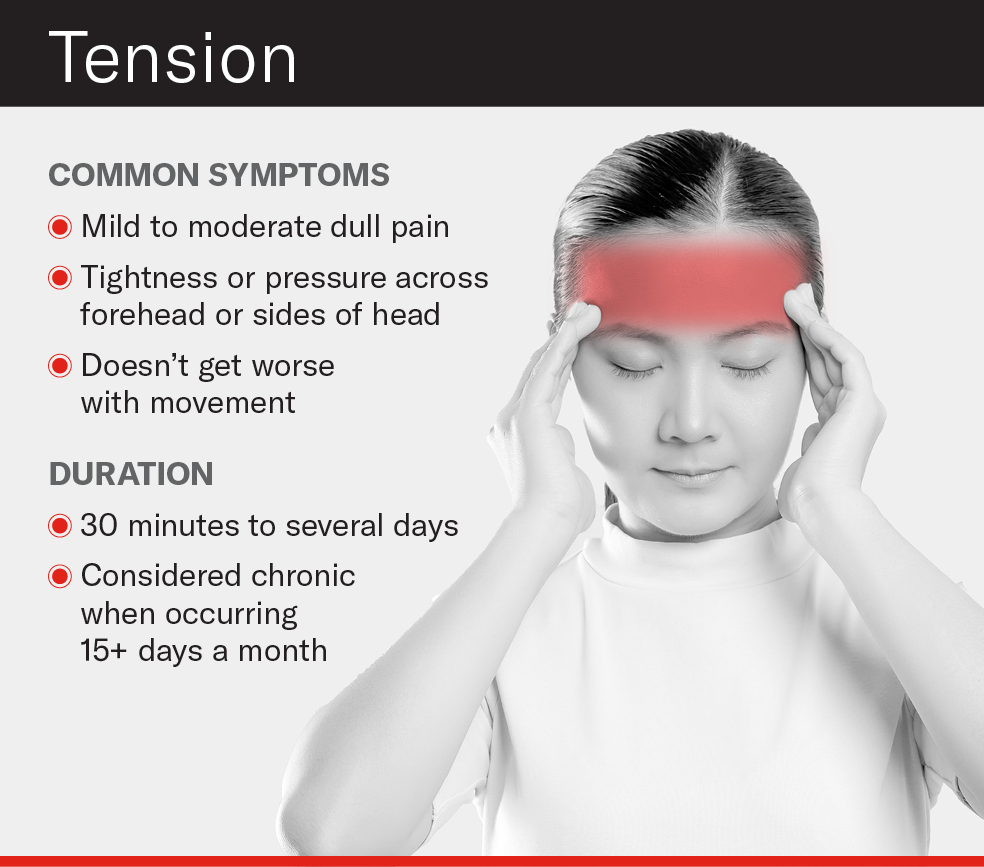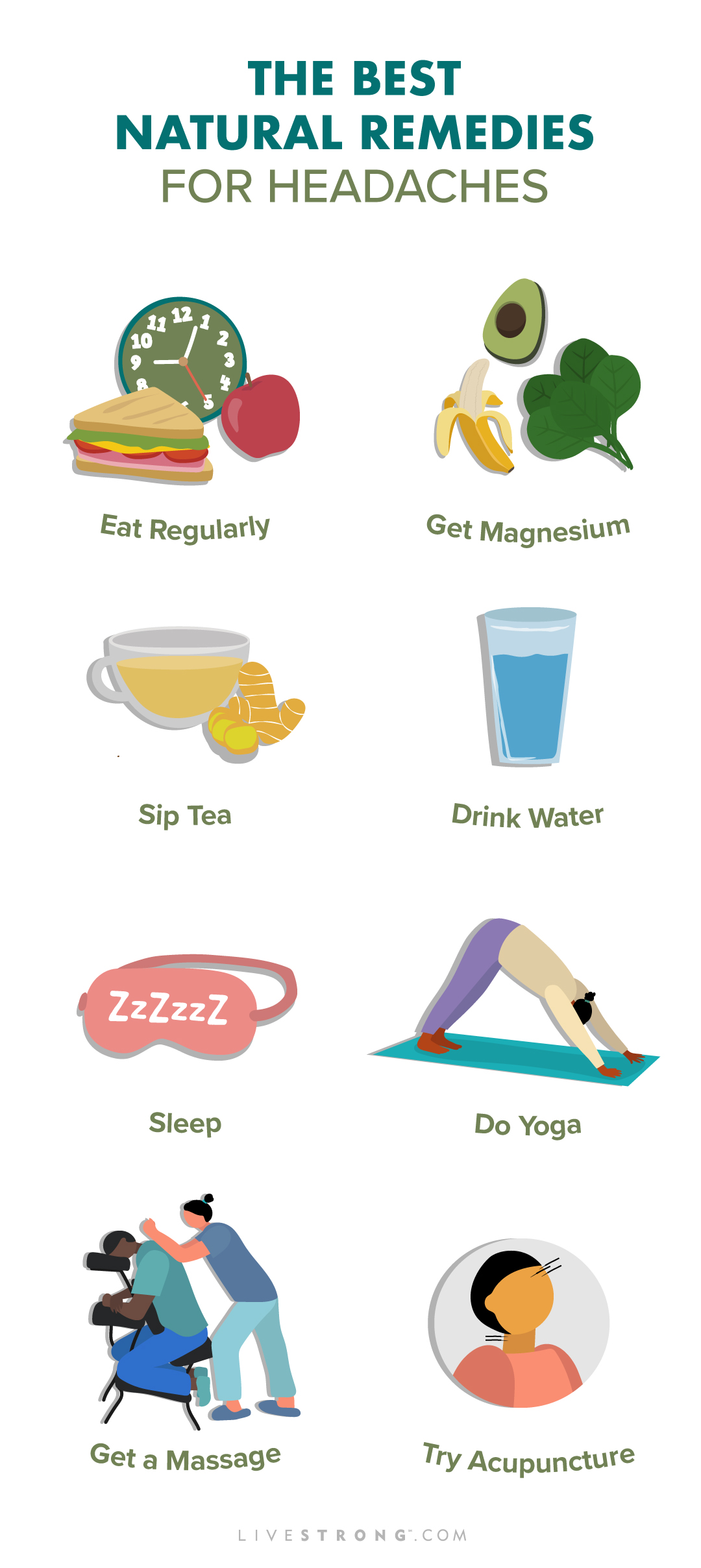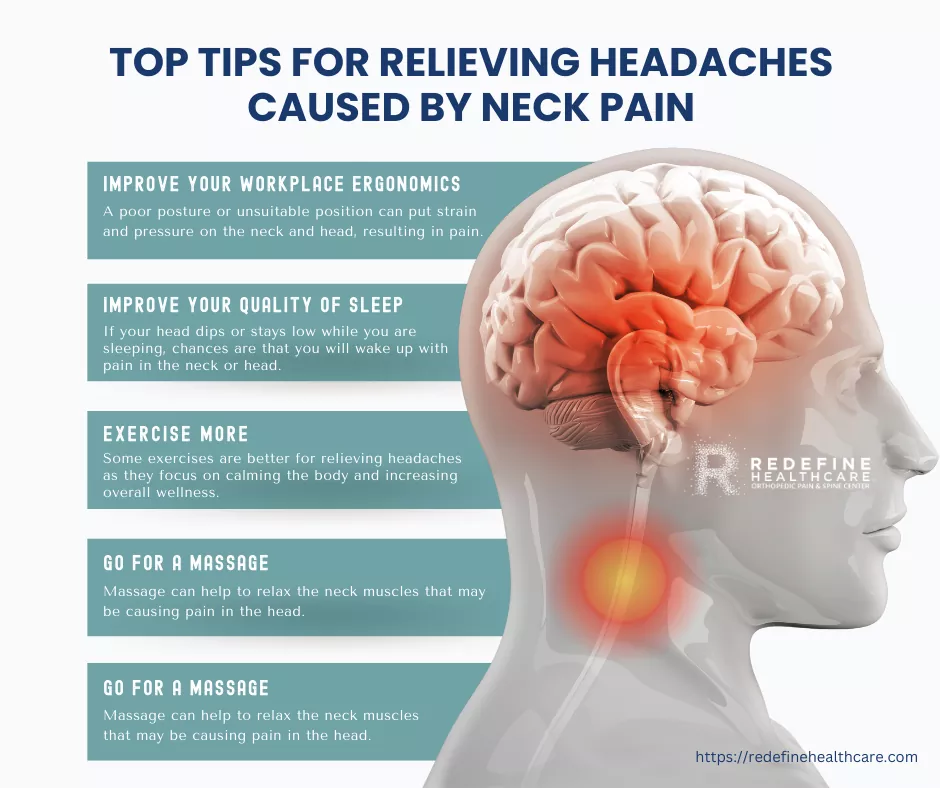Topic what to do for tension headache: Discover effective strategies and expert tips to alleviate tension headaches, ensuring you can tackle the discomfort and regain balance in your life with ease and confidence.
Table of Content
- Effective Treatments for Tension Headaches
- Understanding Tension Headaches
- Immediate Relief for Tension Headaches
- What are some effective ways to relieve tension headaches?
- YOUTUBE: Tension Headache Relief with Simple Stretches - Ask Doctor Jo
- Long-term Strategies to Prevent Tension Headaches
- When to Consult a Professional for Tension Headaches
- Lifestyle Changes to Reduce Tension Headaches
- Alternative Therapies and Treatments
- Recognizing When It"s More Than a Tension Headache
Effective Treatments for Tension Headaches
Managing tension headaches involves a combination of lifestyle adjustments, knowing your triggers, and appropriate use of medications. Ibuprofen, a non-steroidal anti-inflammatory drug (NSAID), is frequently recommended for relieving pain associated with tension headaches.
Lifestyle Changes and Home Remedies
- Use a different pillow or change sleeping positions to improve comfort.
- Practice good posture, especially when working or reading.
- Incorporate regular exercise and stretching for your back, neck, and shoulders.
- Manage stress through relaxation exercises or meditation.
When to Use Medication
Over-the-counter pain medicines like aspirin, ibuprofen, or acetaminophen can be effective. However, it"s crucial to use these medications as directed to avoid the risk of rebound headaches or stomach irritation. For ibuprofen, follow dosing instructions carefully to prevent stomach issues and ensure safe use.
Preventing Tension Headaches
- Identify and avoid headache triggers through a headache diary.
- Consider lifestyle modifications such as better sleep habits and stress management.
- Consult with a healthcare provider about the potential for preventive medications or treatments, including the use of low-dose antidepressants or acupuncture for regular headaches.
When to Seek Medical Advice
Consult a doctor if you experience headaches several times a week, if known treatments are ineffective, or if you notice any changes in your headache patterns. Immediate medical attention should be sought for symptoms indicating a more serious condition.
Summary
Tension headaches can significantly impact your quality of life, but understanding their causes and treatment options, including the effective use of ibuprofen, can help manage and potentially reduce their occurrence. Lifestyle changes, knowing when to use medication, and seeking medical advice when necessary are key steps toward relief.

READ MORE:
Understanding Tension Headaches
Tension headaches, the most common form of headache, are characterized by a feeling of a tight band wrapping around the head, causing a dull, aching head pain and a sense of tightness or pressure across the forehead or on the sides and back of the head. These headaches can be episodic or chronic, affecting quality of life and productivity.
The exact cause of tension-type headaches remains unknown. Previously, it was thought that muscle contractions due to stress or emotional tension were the culprits. However, newer research suggests that a heightened sensitivity to pain and muscle tenderness are more likely factors. Stress is a significant trigger, and factors such as poor posture, eye strain, and sleep disorders can also contribute.
Prevention strategies include regular exercise, biofeedback training, cognitive behavioral therapy, and other relaxation techniques. A healthy lifestyle, including adequate sleep, not smoking, staying physically active, eating balanced meals, and limiting alcohol, caffeine, and sugar, is also recommended to help prevent these headaches.
- Regular sleep, exercise, and meal schedules can reduce or prevent headaches.
- Identifying and avoiding headache triggers is crucial.
- Cognitive-behavioral therapy, relaxation therapy, or biofeedback may reduce or eliminate headaches.
- Medicines may also be prescribed to prevent tension headaches.
When experiencing tension headaches, it"s essential to consult a healthcare provider if they become severe or frequent. This helps rule out other potential causes and ensures appropriate management and treatment strategies are in place.
Immediate Relief for Tension Headaches
Tension headaches, known for their dull, pressing pain, often result from stress, poor posture, or extended periods of screen time. Immediate relief strategies can significantly reduce discomfort and prevent future episodes. Here"s how to ease tension headaches:
- Minimize Stress: Stressful events can trigger tension headaches. Try to limit exposure to stressful situations, and take breaks during long periods of work or screen time. Simplify your life by reducing the number of tasks you undertake.
- Adjust Sleeping Habits: Poor sleeping positions can exacerbate tension headaches. Consider sleeping on your back or side and maintain a neutral neck posture to relieve pressure.
- Exercise and Stretch: Regular physical activity, including stretching and using therapy tools, can help massage and relax neck and shoulder muscles, thus preventing tension headaches.
- Use Over-the-Counter Medication: Aspirin, ibuprofen, and acetaminophen can offer quick relief for episodic tension headaches.
- Apply Heat or Cold: Applying heat with a heating pad or warm compress, or cooling with ice or a cool washcloth on the forehead, can provide immediate relief by relaxing muscles or reducing inflammation.
- Limit Caffeine Intake: While moderate caffeine can help alleviate headache symptoms, excessive intake can lead to headaches and irritability. Try to keep caffeine consumption under 400 milligrams a day.
- Quit Smoking: Nicotine can reduce blood flow to the brain and trigger headaches. Stopping smoking can mitigate this risk.
- Consider Drug-Free Treatments: Massage therapy, chiropractic treatments, physical therapy, or acupuncture may offer relief without the side effects associated with medications.
- Practice Relaxation Techniques: Engage in activities that reduce stress, such as deep breathing, meditation, or light physical activity like walking. Setting aside time for relaxation each day can significantly impact your overall well-being and reduce the frequency of tension headaches.
- Consult a Dentist for TMJ Issues: If jaw clenching is a problem, a dentist can provide solutions, such as a mouth guard, to help prevent headaches caused by temporomandibular joint syndrome.
Implementing these strategies can provide immediate relief and help manage the discomfort associated with tension headaches. However, if headaches persist or worsen, consider consulting a healthcare professional for further evaluation and treatment options.

What are some effective ways to relieve tension headaches?
Here are some effective ways to relieve tension headaches:
- Rest: Take a break and relax in a quiet, dark room to help alleviate the headache.
- Apply Ice Packs: Place a cold compress or ice pack on your forehead or the back of your neck for 15-20 minutes to reduce pain and inflammation.
- Take a Hot Shower: Let the warm water run over your neck and shoulders to help relax tense muscles.
- Manage Stress: Practice relaxation techniques such as deep breathing, meditation, or yoga to reduce stress that can trigger tension headaches.
- Stay Hydrated: Drink plenty of water throughout the day to stay hydrated and prevent headaches caused by dehydration.
- Eat Regular Meals: Maintain a healthy diet with balanced meals and avoid skipping meals, especially breakfast, as low blood sugar can contribute to headaches.
- Exercise Regularly: Engage in physical activity like walking, cycling, or yoga to improve circulation and reduce muscle tension.
Tension Headache Relief with Simple Stretches - Ask Doctor Jo
Stretches: \"Discover the power of stretches in this energizing video that will leave you feeling flexible, refreshed, and ready to take on the day. Join us for a rejuvenating stretching session today!\" Mobility: \"Improve your mobility and feel the freedom of movement with our dynamic video that focuses on enhancing flexibility, strength, and range of motion. Elevate your fitness routine and experience the difference!\"
Mobility Stretches to Help Relieve Tension Headaches
Learn more about tension headaches from Airrosti\'s Dr. Casey Crisp. He demonstrates a few simple exercises you can do ...
Long-term Strategies to Prevent Tension Headaches
Preventing tension headaches involves a holistic approach that focuses on lifestyle adjustments, stress management, and physical health. Here are strategies designed to reduce the frequency and severity of tension headaches over the long term:
- Maintain a Healthy Lifestyle: Regular exercise, a balanced diet, and adequate hydration can significantly reduce the risk of tension headaches. Exercise helps manage stress and promotes overall well-being, while a balanced diet ensures your body gets the necessary nutrients.
- Improve Posture: Poor posture can contribute to tension headaches. Be mindful of your posture, especially if you spend long hours at a desk. Consider ergonomic furniture and take frequent breaks to stretch and realign your body.
- Stress Management: Since stress is a major trigger for tension headaches, finding effective ways to manage stress is crucial. Techniques such as meditation, yoga, deep-breathing exercises, and mindfulness can help keep stress levels under control.
- Regular Sleep Schedule: Maintaining a consistent sleep schedule helps prevent headaches. Ensure you get enough sleep and try to go to bed and wake up at the same times every day, even on weekends.
- Limit Caffeine and Alcohol: Both caffeine and alcohol can affect your hydration status and sleep quality, leading to increased headache risk. Moderating their intake can help minimize headaches.
- Stay Hydrated: Dehydration is a common trigger for tension headaches. Drinking enough water throughout the day is a simple yet effective way to reduce the risk of headaches.
- Seek Professional Help for Chronic Stress: If you"re dealing with chronic stress or anxiety, consider seeking the help of a mental health professional. They can offer strategies and therapies to manage stress effectively.
- Ergonomic Workspace: An ergonomic workspace can reduce strain on your body and prevent tension headaches. Make sure your computer monitor is at eye level, and your chair supports your lower back.
- Limit Screen Time: Excessive screen time can strain your eyes and increase headache risk. Take regular breaks using the 20-20-20 rule: every 20 minutes, look at something 20 feet away for 20 seconds.
- Journaling and Headache Diaries: Keeping track of your headaches can help identify potential triggers. Note down when they occur, their severity, duration, and any potential triggers you"ve noticed. This can help you make lifestyle adjustments to avoid these triggers.
By implementing these strategies, you can reduce the frequency and severity of tension headaches and improve your overall quality of life.
When to Consult a Professional for Tension Headaches
While tension headaches are common and often manageable through self-care, certain symptoms and conditions warrant professional medical advice. It"s essential to understand when seeking a healthcare provider"s guidance becomes necessary to ensure your well-being and address any underlying issues that might be contributing to your headaches.
- Change in Headache Pattern: If you notice a significant change in the frequency, severity, or characteristics of your headaches, it"s crucial to consult with a healthcare professional.
- Sudden Severe Headache: A headache that appears suddenly and is severe in intensity should prompt immediate medical attention.
- Headache with Additional Symptoms: Headaches accompanied by fever, stiff neck, rash, confusion, seizures, double vision, weakness, numbness, or difficulty speaking indicate the need for urgent care.
- Post-Injury Headache: If your headache follows a head injury, especially if it worsens over time, seeking medical advice is essential.
- Impact on Daily Life: When headaches start to affect your daily activities, work, or personal life, professional input can help in managing the condition more effectively.
- Resistance to Over-The-Counter Medication: If your headaches do not improve with rest or over-the-counter pain relief measures, it may be time to see a healthcare provider.
Healthcare professionals can offer a thorough evaluation and, if necessary, recommend treatment plans that may include medication, lifestyle adjustments, or other therapies to manage your tension headaches more effectively.
Remember, early intervention can help prevent potential complications and improve your quality of life. If in doubt, it"s always better to consult with a healthcare provider to get the right diagnosis and treatment plan.

Lifestyle Changes to Reduce Tension Headaches
Making specific lifestyle adjustments can play a significant role in reducing the frequency and severity of tension headaches. These changes focus on minimizing the common triggers associated with these headaches, such as stress, poor posture, and unhealthy habits. Here are several effective strategies:
- Manage Stress: Engage in activities that lower stress, such as deep breathing, yoga, or meditation. Simplify your schedule to avoid feeling overwhelmed and take breaks to prevent burnout.
- Regular Exercise: Incorporate physical activity into your daily routine to help relieve muscle tension and improve overall well-being. Aim for at least 30 minutes of exercise most days of the week.
- Healthy Diet: Eat a balanced diet rich in fruits, vegetables, and whole grains to maintain energy levels and reduce headaches.
- Adequate Hydration: Drink plenty of water throughout the day to stay hydrated and avoid headaches triggered by dehydration.
- Limit Caffeine and Nicotine: Reduce consumption of caffeine and avoid smoking to prevent headaches associated with these substances.
- Improve Sleep Habits: Establish a regular sleep pattern by going to bed and waking up at the same times each day. Ensure a comfortable sleep environment to promote restorative sleep.
- Good Posture: Maintain proper posture, especially when sitting for long periods, to prevent muscle strain and headaches. Consider using ergonomic furniture to support your back and neck.
- Relaxation Techniques: Practice relaxation techniques such as progressive muscle relaxation or biofeedback to help control muscle tension and reduce headache frequency.
- Headache Diary: Keep track of your headache patterns, triggers, and effective relief strategies to identify patterns and make necessary adjustments.
By incorporating these lifestyle changes, you can create a healthier environment for yourself and potentially reduce the occurrence of tension headaches. Remember, if your headaches persist or worsen, it"s important to consult with a healthcare provider for further evaluation and management.
Alternative Therapies and Treatments
For those seeking relief from tension headaches outside of traditional medication, alternative therapies offer a range of options. These methods focus on holistic approaches to ease headache symptoms and reduce their frequency. Here are several alternative treatments:
- Acupuncture: This traditional Chinese medicine technique involves inserting thin needles into specific points on the body. It"s believed to stimulate the body"s natural painkillers and increase blood flow, potentially providing relief from chronic headache pain.
- Massage Therapy: Massaging the back of the head, neck, and shoulders can reduce muscle tension, stress, and headache pain. It"s particularly effective for relieving tight and tender muscles, which are often associated with tension headaches.
- Deep Breathing, Biofeedback, and Behavioral Therapies: Techniques such as deep breathing exercises, biofeedback, and cognitive behavioral therapy can help manage the stress that often triggers tension headaches. These methods teach relaxation and stress management skills to cope with tension-type headaches more effectively.
- Heat and Cold Therapy: Applying heat with a heating pad, hot water bottle, or warm compress—or cold with an ice pack or frozen vegetables wrapped in a cloth—can provide immediate relief by easing muscle tension or reducing inflammation.
- Regular Physical Activity: Engaging in regular exercise helps in stress reduction and promotes overall well-being, which can be beneficial in managing tension headaches. Activities such as yoga and stretching exercises are particularly helpful in maintaining flexibility and reducing muscle tension.
Incorporating these alternative therapies and treatments into your routine can help manage tension headaches and improve your quality of life. Always consult with a healthcare provider before starting any new treatment to ensure it"s appropriate for your individual health needs.

READ MORE:
Recognizing When It"s More Than a Tension Headache
While tension headaches are common and often manageable with lifestyle adjustments and remedies, there are times when a headache may signal something more serious. Recognizing these signs is crucial for timely medical intervention.
- A sudden, very severe headache, unlike any headache you"ve experienced before, could indicate a serious condition and requires immediate attention.
- Headaches accompanied by a fever, stiff neck, mental confusion, seizures, double vision, weakness, numbness, or trouble speaking could suggest a more severe health issue.
- If a headache follows a head injury, especially if it gets progressively worse, it"s important to seek medical help.
- Persistent or worsening headaches should also prompt a consultation with a healthcare professional, particularly if lifestyle changes and home remedies have not improved the situation.
- Medical professionals may recommend several tests to rule out other causes if your headache"s characteristics or your medical history raise concerns. These can include blood tests, sinus X-rays, MRI, or CT scans to look for underlying conditions.
Being aware of these symptoms and acting promptly can be crucial in addressing potentially serious health problems. Regular check-ups and open communication with your healthcare provider about your headache patterns can help in managing your health effectively.
Conquer tension headaches with our comprehensive guide, from immediate relief strategies to long-term prevention. Empower yourself with knowledge and take control of your well-being today.




